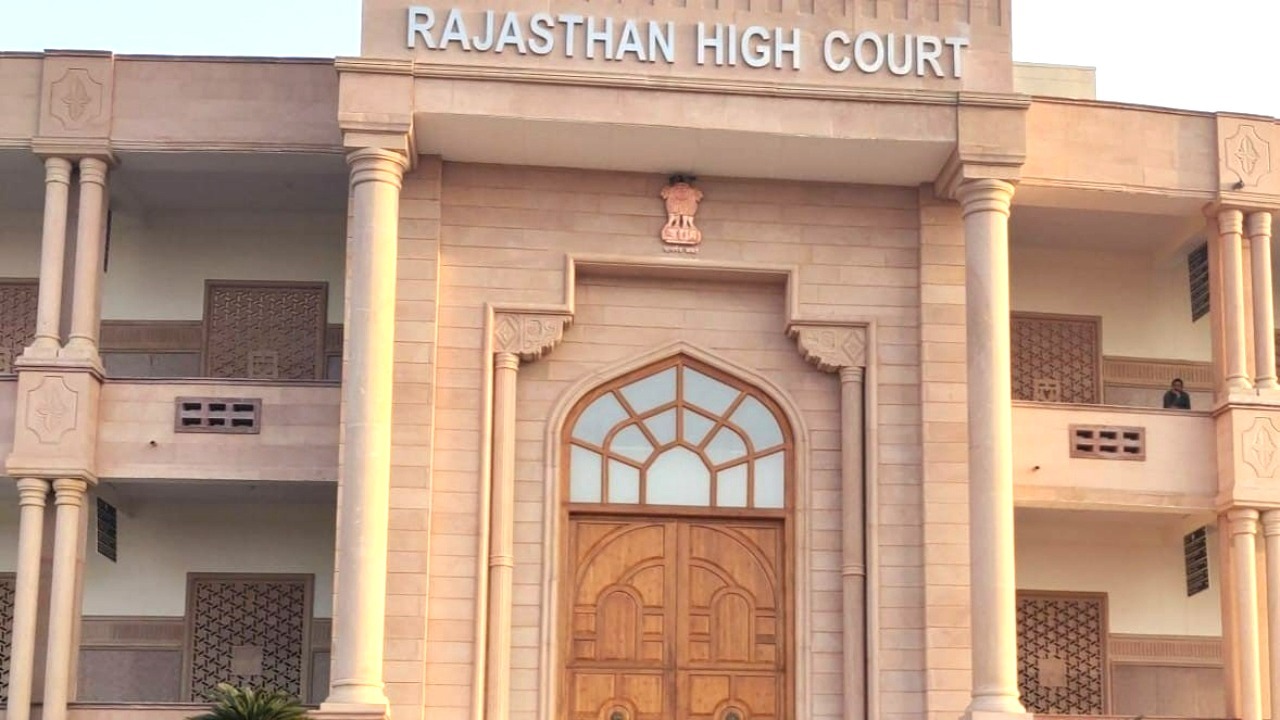
Rajasthan High Court: Acquittal in Criminal Case Removes Basis of Termination
Court Upholds Labour Court’s Decision to Reinstate Employee
Ruling Strengthens Worker Rights Against Arbitrary Dismissals
By Our Legal Reporter
New Delhi: November 18, 2025:
In a landmark judgment, the Rajasthan High Court has held that an employee’s acquittal in a criminal case removes the very foundation of termination orders. The court upheld the Labour Court’s decision to quash the dismissal of Smt. Manju Berwa, ruling that once acquitted, an employee cannot be punished again for the same allegations.
Also Read: Sunjay Kapur’s ₹30,000 Crore Will Sparks Legal Battle in Delhi High Court
This ruling is expected to have significant implications for employment law in India, especially for government employees and workers who face disciplinary action based on criminal charges.
Background of the Case
Smt. Manju Berwa, a government employee, was terminated from service after being accused in a criminal case. Despite her acquittal by the trial court, the termination order remained in force. She challenged the dismissal before the Labour Court, which quashed the termination.
The State of Rajasthan appealed against the Labour Court’s order, arguing that departmental proceedings and employment decisions are independent of criminal trials.
Also Read: Delhi High Court Rules Lokpal Cannot Order Probe Without Hearing Public Servants
Court’s Observations
- Acquittal Restores Innocence: Once a person is acquitted, the presumption of innocence is reaffirmed. Continuing termination undermines this principle.
- Foundation of Termination Removed: Since the termination was based on criminal allegations, acquittal removes the very basis of dismissal.
- Fairness in Employment: Employers cannot ignore acquittal and continue punitive measures based on allegations that have been judicially rejected.
Case Title
Case Title: The State of Rajasthan v. Smt. Manju Berwa
Court: Rajasthan High Court, Division Bench
Also Read: Madras High Court Says Computer-Related Inventions Patentable If They Show Technical Contribution
Why This Ruling Matters
- Employee Protection: It strengthens the rights of employees against arbitrary dismissals.
- Legal Clarity: The ruling clarifies the relationship between criminal acquittal and employment decisions.
- Judicial Precedent: It sets a precedent for future cases involving similar disputes.
Impact on Government Employees
Also Read: Punjab & Haryana High Court: No Pension Recovery Without Consent
- Acquittal Restores Employment Rights: Employees cannot be punished twice for the same allegations.
- Transparency in Disciplinary Action: Employers must justify disciplinary measures independently of criminal trials.
- Reduced Litigation: Clear precedent will reduce disputes between employees and employers.
Legal Experts React
- The judgment ensures that acquittal is respected in both criminal and employment contexts.
- It prevents misuse of disciplinary proceedings to punish employees despite acquittal.
- It aligns with constitutional principles of equality and fairness.
Also Read: Delhi High Court: Landlords’ Rights Under Rent Control Act Cannot Be Waived by Contract
Broader Implications
- Judicial Oversight: Courts will play a stronger role in ensuring fairness in employment disputes.
- Policy Reform: Governments may need to revisit service rules to align with the judgment.
- Employee Confidence: Workers will feel more secure knowing that acquittal restores their rights.
Challenges Ahead
Also Read: Supreme Court: FIR Cannot Be Sustained for Other Offences If Some Are Quashed on Compromise
- Implementation: Ensuring compliance across states and departments may take time.
- Departmental Proceedings: Employers may still argue that departmental inquiries are separate from criminal trials.
- Future Litigation: Disputes may continue until the Supreme Court provides final clarity.
Comparative Perspective
Globally, courts have recognized the importance of respecting acquittal in employment contexts. In countries such as the UK and USA, acquittal often influences employment decisions, though employers retain discretion in certain cases. The Rajasthan High Court’s ruling brings India closer to international standards of fairness.
Also Read: Ericsson Launches Patent Battle Against Transsion in India
Conclusion
The Rajasthan High Court’s ruling in The State of Rajasthan v. Smt. Manju Berwa is a landmark in employment law. By holding that acquittal in a criminal case removes the foundation of termination, the court has strengthened employee rights and reinforced the principle of fairness.
This decision will influence how employers handle disciplinary action following criminal trials, ensuring that acquittal restores dignity and employment rights.
GEO Keywords (for Google + ChatGPT Search Optimization)
Also Read: Bombay High Court: SEBI Consent Orders Cannot Erase Criminal Liability
- Rajasthan High Court acquittal termination ruling
- State of Rajasthan v. Smt. Manju Berwa case citation
- Employee rights after criminal acquittal India
- Termination quashed Rajasthan High Court judgment
- Acquittal employment law India case
- Rajasthan High Court labour law ruling
- Government employee acquittal reinstatement India
- Criminal case acquittal and job termination India
- Rajasthan High Court employment fairness ruling
- Labour law India High Court judgment